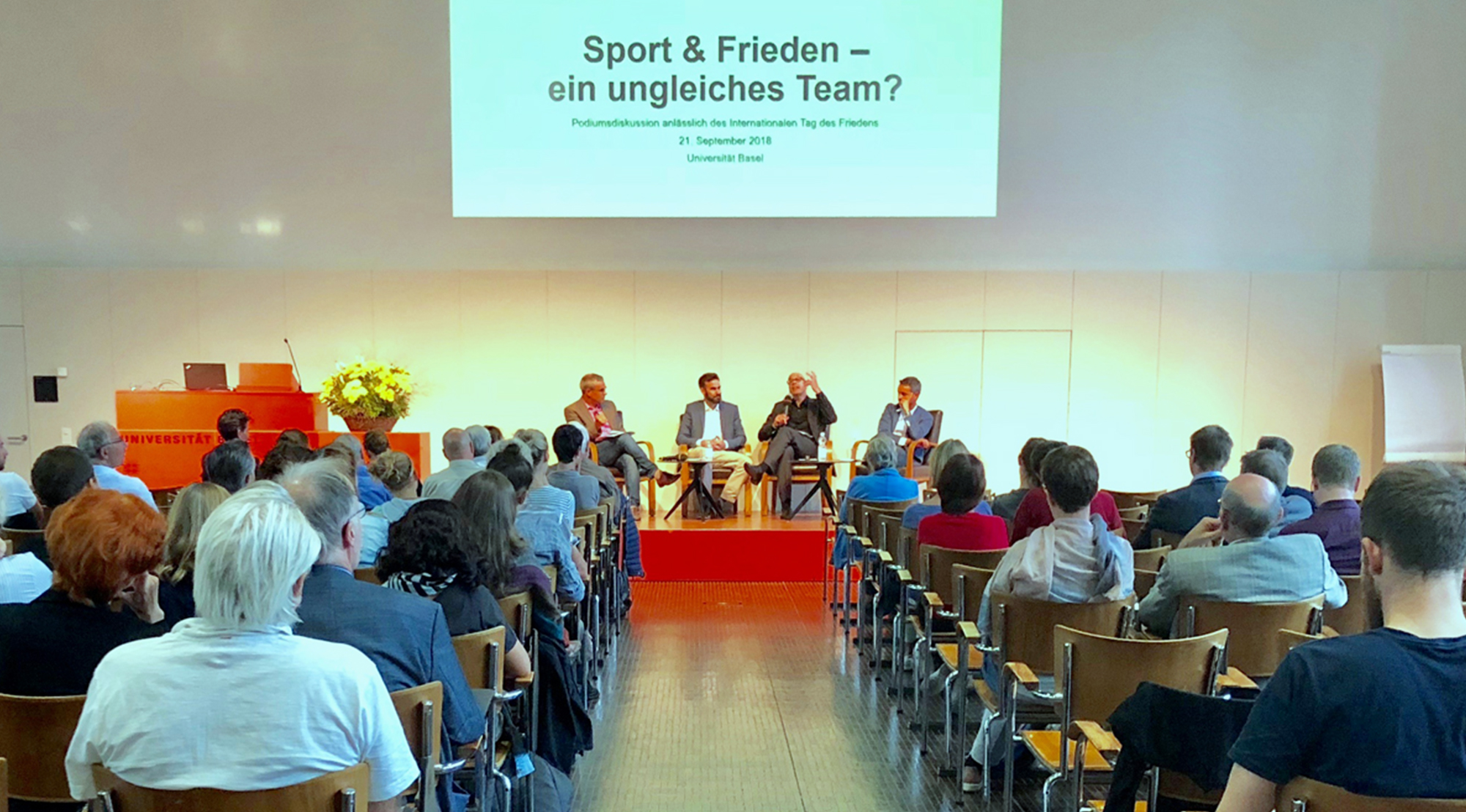Sport and peace: conflict in sport originates in the real world
On September 21, swisspeace organized a public discussion with some illustrious guests. In addition to Bernhard Heusler, the former President of FC Basel, and Marc-André Buchwalder, CEO of the Scort Foundation, Erik Petry, Professor of Jewish Studies at the University of Basel also took a seat on the panel. The discussion was opened by the President of the Executive Council of the Canton of Basel-Stadt, Elisabeth Ackermann. A lively and respectful debate about the role of sport in peace efforts unfolded in front of the listeners from the very beginning. All the speakers made their differing views clear from the start. For example, Heusler spoke of his term at FC Basel, both a sports club and a large enterprise. Across from him sat Buchwalder, founder of a grassroots foundation that celebrates sport as a way of bringing people together. Petry brought some historical depth to the discussion, pointing out that (competitive) sport was frequently used as a strengthening exercise before the war. Petry argued that only a careful differentiation of sport, competition, athletes and fans could lead to a serious debate.
The discussion spent a long time focusing on football, which can likely be put down to the biographies of each of the participants. However, the approaches brought to the discussion were from the perspective of sport in general. For example, the panel extensively discussed gender issues in sport. Buchwalder talked about a positive example in Sri Lanka, in which a Tottenham Hotspurs football coach helped a scheme to allow girls to play football at school too. The panelists also answered questions on hot topics. Petry appreciated the issue of the double headed eagle concerning Albanian-born Swiss footballers that erupted after the World Cup, which marked the first step in touching on the long-overdue discussion about nationality, ethnicity and sport.
So, does sport really offer a chance for peace? A concluding plea for or against this was not offered by any of the participants, nor by moderator Laurent Goetschel. They did, however, all agree that sport is a reflection of society. Conflict in sport often originates in the “real world.” A peaceful resolution of conflicts is a possibility in the world of sport, but expectations should not be set too high. We can only hope that we kick more and shoot less in the future.
The event took place on September 21, 2018, from 5.00 p.m. to 6.30 p.m. at the University of Basel, Aula, Kollegienhaus, Petersplatz 1, CH-4051 Basel and was open to the public. swisspeace would like to thank Elisabeth Ackermann, Bernhard Heusler, Marc-André Buchwalder and Erik Petry for their active participation and all listeners for the lively discussion and crucial questions.


